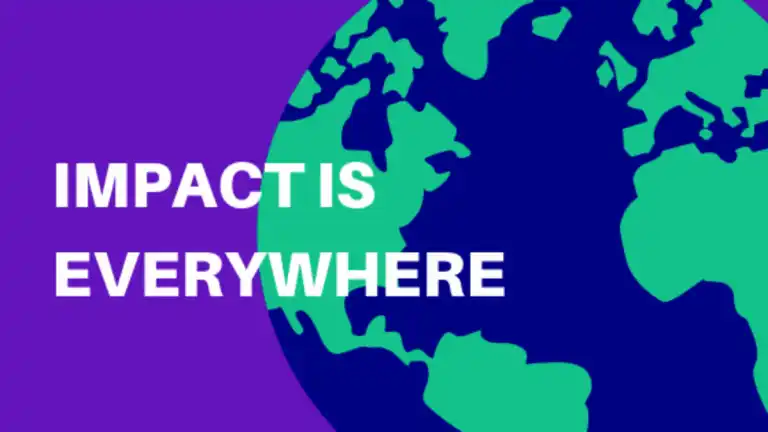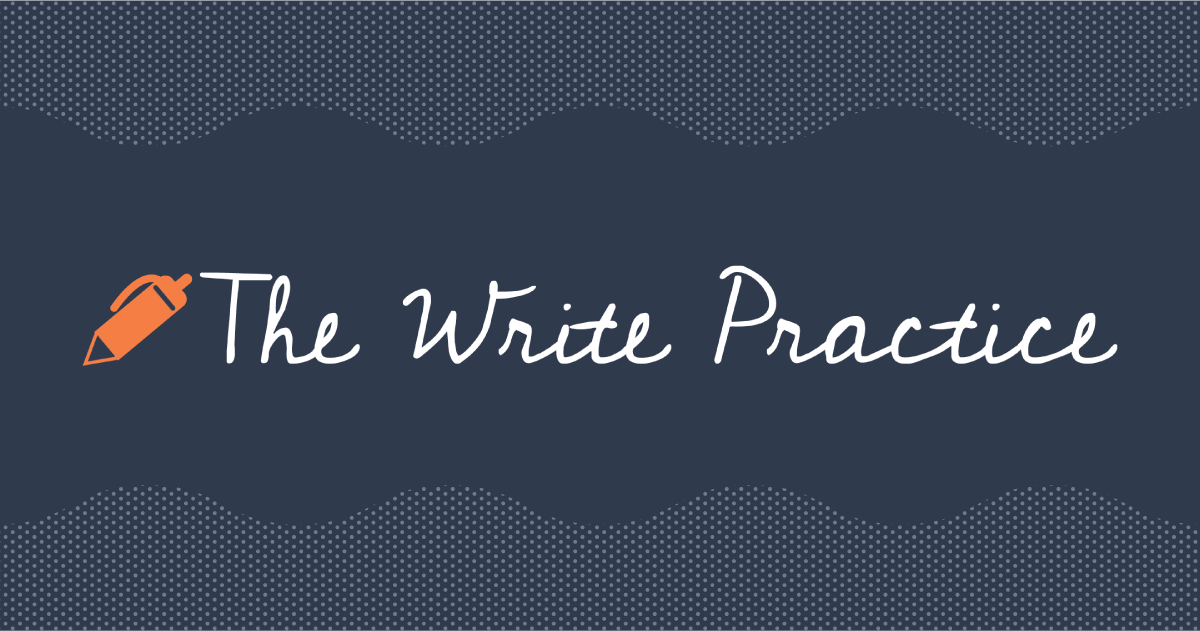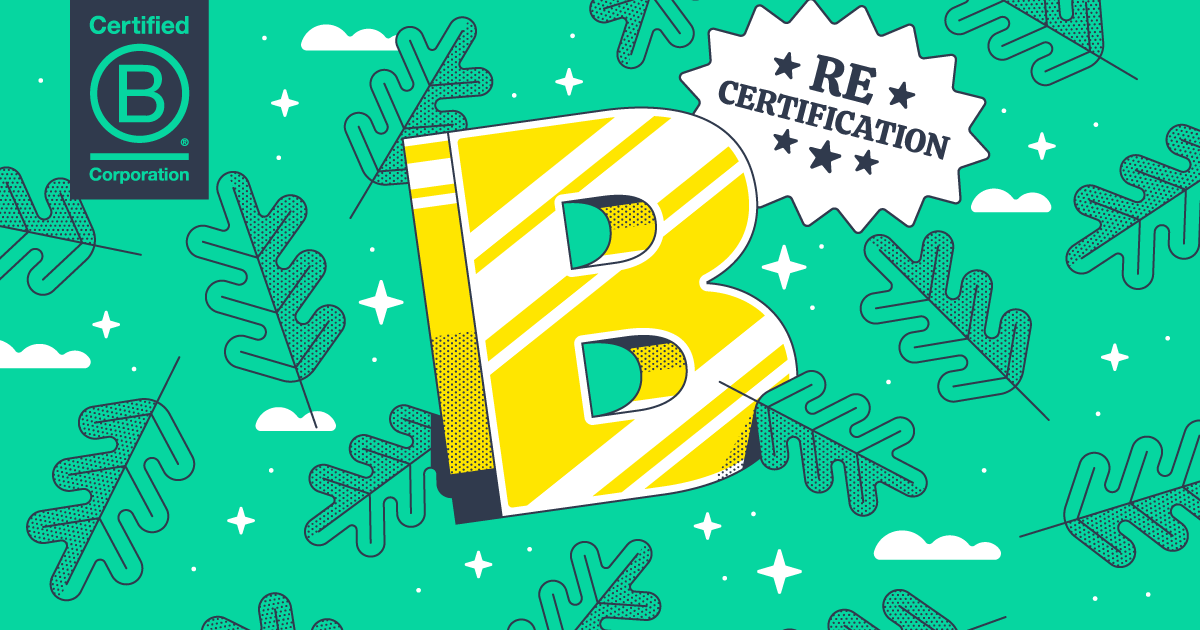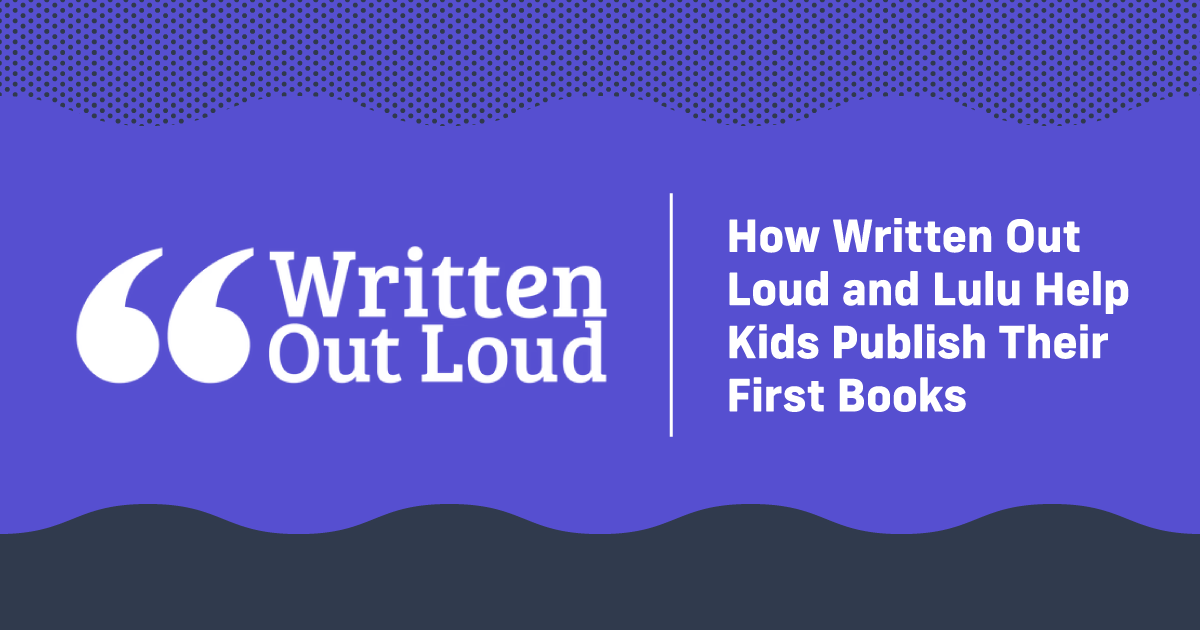Impact Is Everywhere
As the Backstreet Boys once famously (or never) said; No matter who you are, where you’re from, what you do, the impact is around you.
Fittingly, Duke’s Fuqua School of Business chose the theme of “Impact is Everywhere” for their 14th annual Sustainable Business & Social Impact (SBSI) Conference. The yearly conference brings together business school students, cross-industry leaders, and inquisitive community members to explore social and environmental issues and potential solutions.
Team Lulu donned our best business blazers to bring you the latest industry trends as covered in the 2019 SBSI Conference.
Forward Thinking, Circular Movement
To better understand the importance of a conference like SBSI, it’s constructive to zoom out to see the current workings of our economy.
Historically, the economy has moved in a very linear way.
Take.
Make.
Dispose.
Humans take natural resources to make products that are used and later discarded as waste. With this current model, we’re left with two major problems – resource depletion and waste management.
To be the bearer of bad news, much of the world’s natural resources are finite. Once they’re gone, they’re gone for good.* Unless you can wait a few eons or so for the earth to (maybe) regenerate everything we’ve taken.
*We acknowledge the law of conservation of energy. Technically, the resources still exist, but they’re often changed to forms that humans haven’t quite figured out how to handle beyond “Let’s dig a big pit in the ground, dump the junk, and cover it with concrete!”
Furthermore, our consumption habits aren’t particularly efficient. We prefer the disposable over the durable. All roads lead to the landfill. Do not pass go. Do not collect $200.
It’s not all bad news, though. One SBSI panel explored a potential solution to our growing problem – The Circular Economy.
The Circular Economy
This economic framework aims to minimize waste and make the most of our resources. Do more with less.
According to the Ellen MacArthur Foundation, the three goals of the circular economy are –
- Design out waste and pollution
- Keep products and materials in use
- Regenerate natural systems
The Roundest Table
SBSI panelist, Katherine Hand from HP, Inc. shared how her company works with recycling facilities in Haiti to recover used plastic bottles of all colors, not just the preferred clear bottles. The plastic is then processed into pellets, dyed, and later used to manufacture new ink cartridges.
HP’s plastic waste recovery not only helps reduce plastic pollution, but it also saves the company money by opting for less desirable plastic bottles. Most manufacturers that use recycled plastic tend to prefer clear plastic because it can be easily dyed to match the product’s color branding rather than the brownish, sludge color of combining all plastics.
Another panelist, Crystal Dreisbach, shared how her company, GreenToGo, incorporates the Circular Economy through intentional design and a shift to a service model instead of product ownership.

Create Your Book
Use Lulu's free templates to easily create and publish your book today.
GreenToGo
GreenToGo is a reusable, returnable takeout container service. Customers purchase an annual membership to use durable to-go containers from participating restaurants. The containers are later returned to a drop-off bin, very similar to checking out a library book or Redbox DVD.
Dreisbach explained that a major goal of the Circular Economy is to not only use recycled materials but also create products that use fewer materials and incorporate a smart design that allows for the product to be upgradable and/or repairable. For example, Green2Go customers can return broken takeout containers to the company for repair. The container can be temporarily removed from service and repaired by the company causing no undue stress for the customer. Repairing containers allows the same material to stay in use longer and as a result, reduces resource extraction.
Challenges of a Circular Economy service model lie in the responsibility of ownership and recovery. To achieve success, the product-as-a-service model requires participants to return items to be reused and ideally unharmed. Circular Economy businesses will need to incentivize customers not to toss the items into the trash.
Still, many businesses see the Circular Economy as a potential profitable solution to the growing demand for sustainability. In a survey of 300 executives of American companies, 62% reported that they will move to a circular business model.
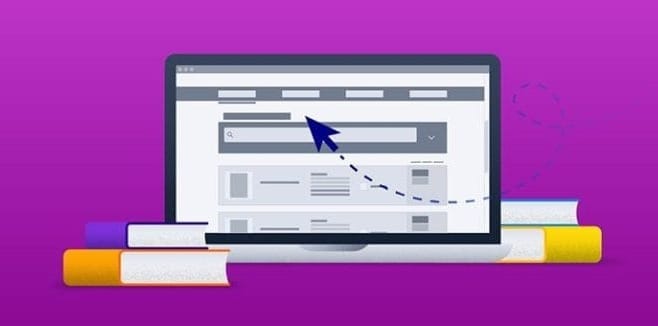
Your Free Lulu Account
Create a Lulu Account today to print and publish your book for readers all around the world
You CAN Teach an Old Dog New Tricks
A growing number of business schools have programs dedicated to teaching tomorrow’s corporate leaders how to make decisions that benefit all stakeholders. This in itself is remarkable considering the long tradition of shareholder primacy, a legal concept that the number one goal of business is to bring value (money) to shareholders. Now, business school students are learning how to pursue profit and benefit their workforce, communities, and the environment.
With the growing expectation from consumers that businesses should improve the environment, it’s unlikely this topic will go away. In fact, Nielsen reported in a recent global sustainability report that 81% of respondents feel strongly that companies must help the environment.
Great Expectations
Companies are responding to meet consumer and employee expectations of business’ evolving role in society. Some have restructured their business models while others have created impact roles within their traditional organizations.
SBSI panel, “Changing Business Models,” investigated this very topic. North Carolina State University Professor Jessica Thomas moderated the group comprised of Adlen Zecha (We Scale Impact), Arlan Peters (Novozymes of America), and Jackie Bennett (SJF Ventures).
While the day-to-day responsibilities of the panel members varied, they each represent different types of impact. From job responsibilities directly tied to social impact/sustainability, like Arlan Peters, to more traditional role at a social impact firm, such as Jackie Bennett and Alden Zecha; all play an important role in using business to do good.
Their message: regardless of your position, you can catalyze positive impact.
Here are some options to be the changemaker you were born to be:
- Choose to work for a company that prioritizes sustainability and social good. B Work and Idealist are chock full of these types of jobs.
- Start your own venture. Duke’s Center for the Advancement of Social Entrepreneurship (CASE) and Stanford’s Social Enterprise Hub are excellent resources.
- Be an intrapreneur. Identify opportunities for environmental improvement and connect them to the company’s bottom line. There’s a strong business case for Corporate Social Responsibility. Or, spearhead your company’s Green Team. It’s good for employee engagement.
- Support companies that live the People, Profit, Planet ethos. Not sure where to find them? Check out DoneGood.co.
If You’re Reading This, You’re Doing Great
Good news, you are already part of the B Economy. This is a movement built by everyone who works for, buys from, invests in, learns or teaches about, or supports businesses striving to create shared and durable prosperity for all.
You don’t have to pursue an MBA program, attend a conference, or wear business slacks to create positive change. There are all sorts of ways to change the world. Your relationship with Lulu, whether you’re an author, reader, or admirer from afar, is a declaration to the world that you support purpose-driven business.
Comment below and let us know what you’re doing to make every day better than yesterday!

